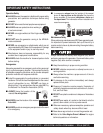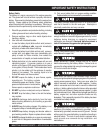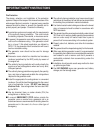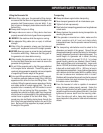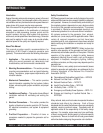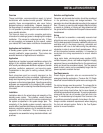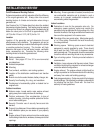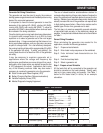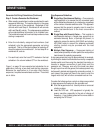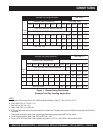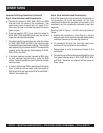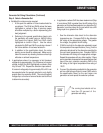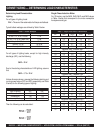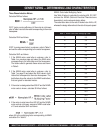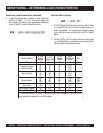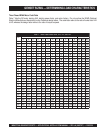
PAGE 18 — INDUSTRIAL GENERATOR SETS — APPLICATION & INSTALLATION MANUAL — REV. #4 (09/07/07)
GENSET SIZING
Generator Set Sizing Calculations (Continued)
Step 2. Create a Generator Set Worksheet
a. When creating a worksheet, number a worksheet for each
sequenced load step. The number block is in the upper
right hand corner of the worksheet. Worksheet #1 will
coincide with Load Step #1, Worksheet #2 will coincide
with Load Step #2, and etc.. The
step sequence guidelines
will provide additional information to be followed here.
The worksheets need not have load step numbers unless
starting is sequential.
b. Enter the individually assigned load numbers (load
schedule) onto the appropriate generator set sizing
worksheet. That is, all the load numbers for load step #1
should be entered on worksheet #1, for load step #2 on
worksheet #2, and etc.
c. For each load, enter the
Load QTY
marked on the load
schedule in the column labeled
QTY
on the worksheet.
Figure 1 on page 19 is an example load calculation for an
application involving a two-step load starting sequence.
Because the application is a two-step load starting
sequence, it requires two worksheets as shown. The entries
are in
italics
.
Step Sequence Guidelines
Single Step, Simultaneous Starting — One commonly
used approach is to assume that all connected loads
will be started simultaneously in a single step, regardless
of the number of transfer switches used. This approach
assures that the genset is properly sized to meet the
entire load demand and is the most conservative
method.
Single Step, with Diversity Factor — This is similar to
simultaneous starting in a single step, except that an
estimated diversity factor, of perhaps 80 percent, is
applied to reduce the starting kVA (SkVA) and starting
kW (SkW) totals to account for whatever automatic
starting controls may be provided with the load
equipment.
Multiple Step Sequence — Sequenced starting of
loads (where possible) will often permit the most precise
load demand for selecting a generator.
A step sequenced start may be approximated, for example,
by dividing the loads into blocks each served by a separate
transfer switch and then using the standard time delay on
transfer to stagger connection of each block onto the
generator set. However, once all of the loads have been
brought up on line with the genset, the load equipment may
be frequently started and stopped by automatic controls. In
such cases, the genset will have to be sized to start the
largest motor last, with all other connected loads on line.
Consider the following when controls or delays are provided
to step sequence the loads onto the generator set:
Start the largest motor first. Use only when on a manual
starting system.
Load the UPS last. UPS equipment is typically fre-
quency sensitive, especially to the rate of change of
frequency. A pre-loaded genset will be more stable in
accepting the UPS load.



